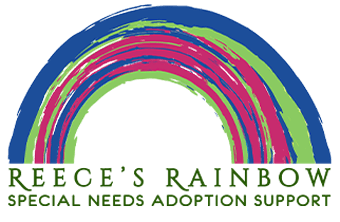Twins Nelson and Nellie are six years old. They were born to a teenaged mother who was in protective care herself. Given specific familial concerns that will need to be discussed with interested families, the children were placed into foster care together and eventually were deemed in need of an adoptive family. There is no history of abuse with these children.
Nelson is overall healthy and does not have any medical diagnoses nor does he take any medication. However, while his motor development is age-appropriate, he has a mild language delay. Nelson is able to pay attention and communicate with others, but he has an impairment in his ability to pronounce words and complete sentences with difficulty pronouncing “l” sounds especially. He is receiving speech therapy. His profile indicates a learning delay “considering the developmental scale he is currently in” and recommends stimulation, but there is not a specific diagnosis given. He does not show any difficulty processing sensory information. He is receiving occupational therapy and psychiatric follow-up for a “diagnostic impression of Unspecific Conduct Disorder” but he does not have an official diagnosis. He does not react well when given limits and sometimes throws tantrums when he is not able to do something he wants to do. He does not have any social development concerns, though there are time he prefers to play alone while other times he plays and interacts with his peers.
Nelson is an affectionate child who is able express his emotions to others. He is attached to his foster parents and appropriate seeks their attention and approval when completing tasks. He tends to allow his sister to lead him and to be the dominant sibling in the relationship. It saddens him when he cannot play with her or is separated from her (normal daily temporary reasons, not separated with regard to where they live).
Nelson enjoys playing with cars, dinosaurs and balls. He loves going to the park, playing sports—especially soccer—with his classmates, and he is noted to be a skilled painter.
While Nellie also does not currently have any physical/medical diagnoses, she is being evaluated for Autism Spectrum Disorder. A psychiatric evaluation appointment is pending due to testing showing sufficient criteria for a diagnosis of Autism Spectrum Disorder, but a thorough evaluation is needed to determine a diagnosis. Symptoms noted including persistent language development delay, attention lability, motor restlessness, stereotyped behavior, limited eye contact, and difficulty in understanding directions. A pedagogy evaluation appointment is also scheduled. Nellie displays behavioral concerns, especially with regard to her schoolwork. She is resistant to doing schoolwork (though she is capable to do the work) and to obeying the rules and limits of the classroom. At home, she has resisted doing homework and even has scribbled on her notebooks and thrown them on the floor. At her previous early childhood educational program, she also showed behavioral difficulties and difficulties recognizing authority figures, trouble staying involved in activities and a preference for more open areas of the institution. She cries when she is not allowed to do something she wants to do. However, she is able to play alone or focus on tasks she wants to do such as playing with dolls or dancing.
Nellie’s motor development is age-appropriate. She does not have any difficulty processing sensory information. Like her brother, she is able to communicate but has difficulty with word pronunciation—especially in pronouncing the “l” sound. Socially, she is able to establish relationships with other children and plays with others. Despite her behavioral concerns, she is noted to usually have a good disposition, be cheerful and integrated with her foster family. Her foster family has been given instruction on how to help improve her behavior and there has been progress made.
Nellie is strongly attached to her foster parents and her brother. She is able to give and receive affection with them and sometimes exhibits jealousy when the foster mother shows affection toward other children in the home. She seeks approval from her foster parents and from others with whom she has an emotional bond. Nellie is the more dominant sibling and takes the initiative to ask for things for both herself and her brother.
Nellie finds joy in playing with her dolls and receiving affection from those she is close to. She is an expressive child who engages in caregiving role-play. She likes wearing dresses and having bows in her hair. She enjoys and is good at dancing and singing, and also likes playing with toys, going to the park and watching television.






